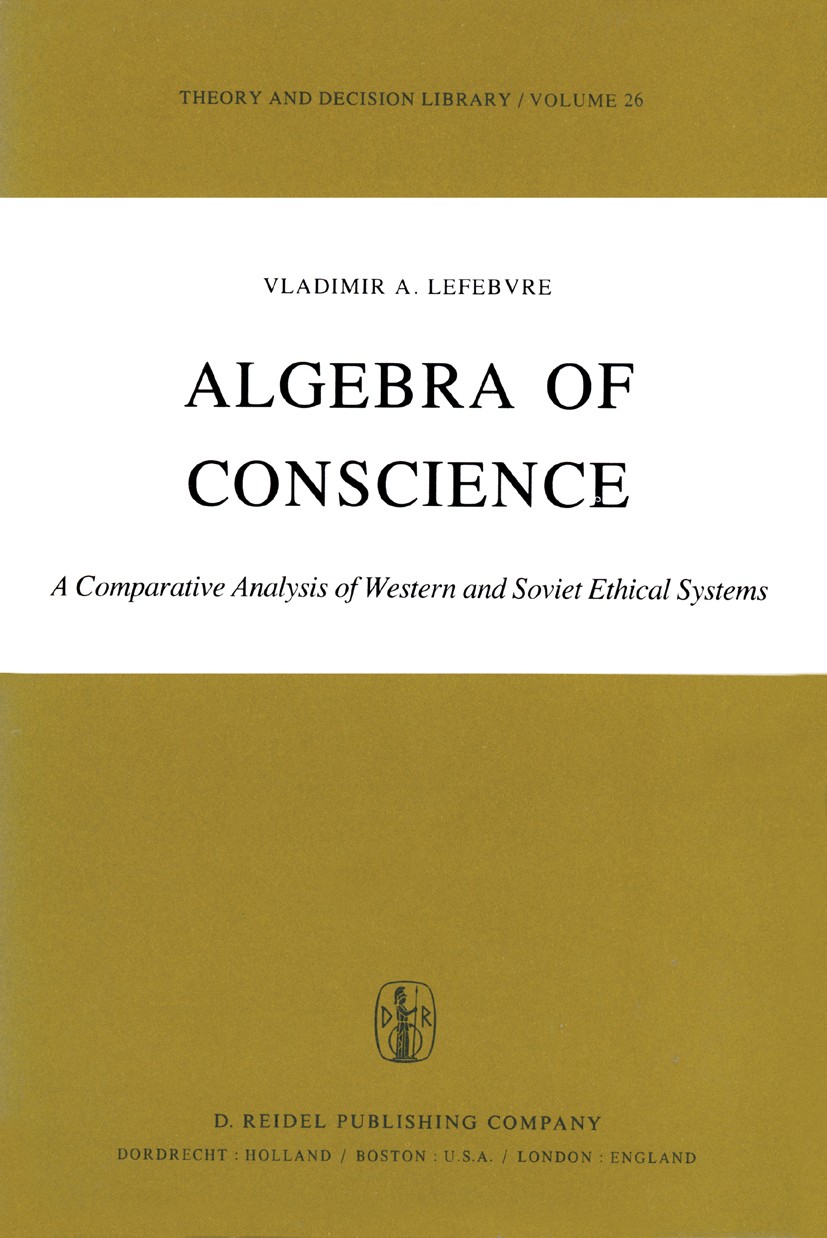| 期刊全稱(chēng) | Algebra of Conscience | | 期刊簡(jiǎn)稱(chēng) | A Comparative Analys | | 影響因子2023 | Vladimir A. Lefebvre | | 視頻video | http://file.papertrans.cn/153/152517/152517.mp4 | | 學(xué)科分類(lèi) | Theory and Decision Library | | 圖書(shū)封面 |  | | 影響因子 | In this book two ethical systems are described in the language of mathematics. Ordinarily mathematics is thought to be a science of quantity. Indeed, manipulation of quantities constitutes much of mathematics. Elementary applied mathematics deals with reckoning and measurement, where concrete quantities are objects of attention, such as counting sheep or weighing corno But the operations on these quantities are performed with the help of symbols, from which concrete referents have been ‘a(chǎn)bstracted out‘: 3 + 5 = 8 regardless of whether the symbols stand for numbers of sheep or tons of corno Thus, the first principle that exhibits the power of mathematics is abstraction. It is one ofthe three pillars on which the edifice of mathematics rests. Another pillar is precision. Ordinarily, man communicates by words. W ords serve communication to the extent that they refer to things, events, states of affairs, feelings of the speaker, and so on. These are the meanings attributed to words. Communication is successful to the extent that the meanings coded upon words by the speaker correspond to the meanings decoded by the hearer. As is weH known, the degree ofthis correspondence varies enormou | | Pindex | Book 1982 |
The information of publication is updating

|
|
 |Archiver|手機(jī)版|小黑屋|
派博傳思國(guó)際
( 京公網(wǎng)安備110108008328)
GMT+8, 2025-10-25 15:57
|Archiver|手機(jī)版|小黑屋|
派博傳思國(guó)際
( 京公網(wǎng)安備110108008328)
GMT+8, 2025-10-25 15:57


